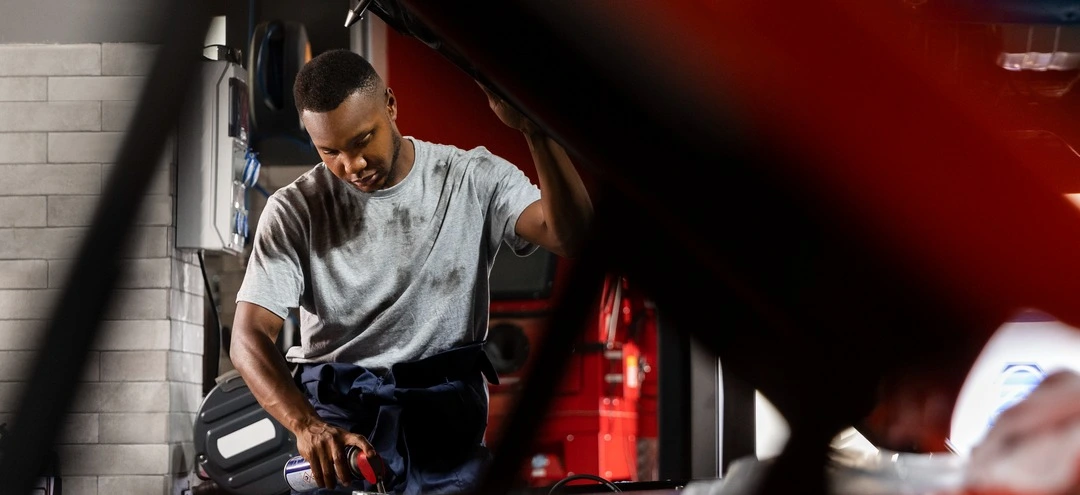Buying a new car is a significant investment, and ensuring it stays in excellent condition is essential for long-term satisfaction. Regular maintenance can extend the life of your vehicle, improve its performance, and save you money on repairs. In this blog, we'll explore practical tips to minimize maintenance and keep your new car out of the shop.
1. Follow the Manufacturer's Maintenance Schedule
Every car comes with a manufacturer-recommended maintenance schedule. Adhering to this schedule is crucial for keeping your vehicle in top condition. Regular oil changes, tire rotations, brake inspections, and other routine services can prevent major issues down the road. Always refer to your owner's manual for specific guidelines.
2. Check Fluids Regularly
Your car relies on various fluids to operate smoothly. Regularly check and top off essential fluids such as engine oil, coolant, brake fluid, transmission fluid, and power steering fluid. Maintaining proper fluid levels can prevent overheating, improve braking performance, and ensure smooth gear shifts.
3. Keep Your Tires in Check
Proper tire maintenance is vital for safety and efficiency. Check tire pressure monthly and ensure it matches the manufacturer's recommendations. Rotate your tires every 6,000 to 8,000 miles to promote even wear and extend their lifespan. Additionally, regularly inspect your tires for signs of damage or wear and replace them as needed.
4. Drive Smoothly and Responsibly
Aggressive driving habits can accelerate wear and tear on your vehicle. Avoid rapid acceleration, hard braking, and excessive speeding. Driving smoothly and responsibly not only prolongs the life of your car but also improves fuel efficiency and reduces the risk of accidents.
5. Keep Your Car Clean
Regularly washing and waxing your car protects the paint and prevents rust. Clean the interior to avoid wear and tear on seats, carpets, and dashboard components. Pay attention to undercarriage cleaning, especially in winter months, to remove salt and grime that can cause corrosion.
6. Use Quality Fuel and Oil
Using high-quality fuel and oil can significantly impact your car's performance and longevity. Opt for fuels that meet your car's octane rating and choose synthetic oils for better engine protection and performance. Regularly changing your oil and using quality products can keep your engine running smoothly.
7. Monitor Your Battery
A well-maintained battery ensures your car starts reliably. Check the battery terminals for corrosion and clean them if necessary. Ensure the battery is securely mounted and test its charge periodically. Replace the battery every 3-5 years or as recommended by the manufacturer.
8. Pay Attention to Warning Lights
Modern cars are equipped with various warning lights that alert you to potential issues. Don’t ignore these lights; instead, address them promptly to prevent minor problems from becoming major repairs. Refer to your owner's manual to understand what each warning light signifies.
9. Protect Your Car from Extreme Weather
Extreme weather conditions can take a toll on your vehicle. In hot climates, use sunshades to protect the interior and park in shaded areas. In cold climates, regularly wash your car to remove salt and use a garage or car cover to protect it from snow and ice.
10. Keep Up with Software Updates
Many new cars come with advanced software systems that require periodic updates. Ensure your car's software is up-to-date to benefit from the latest features, improvements, and security patches. Regular updates can enhance your vehicle's performance and overall driving experience.
Conclusion
By following these practical tips, you can minimize maintenance and keep your new car out of the shop. Regular care and attention to detail will ensure your vehicle remains reliable, safe, and enjoyable for years to come. Remember, a little effort now can save you time and money in the future.
Stay tuned to our blog for more tips and advice on maintaining your car and keeping it in top condition. Drive safely and enjoy your new ride!








